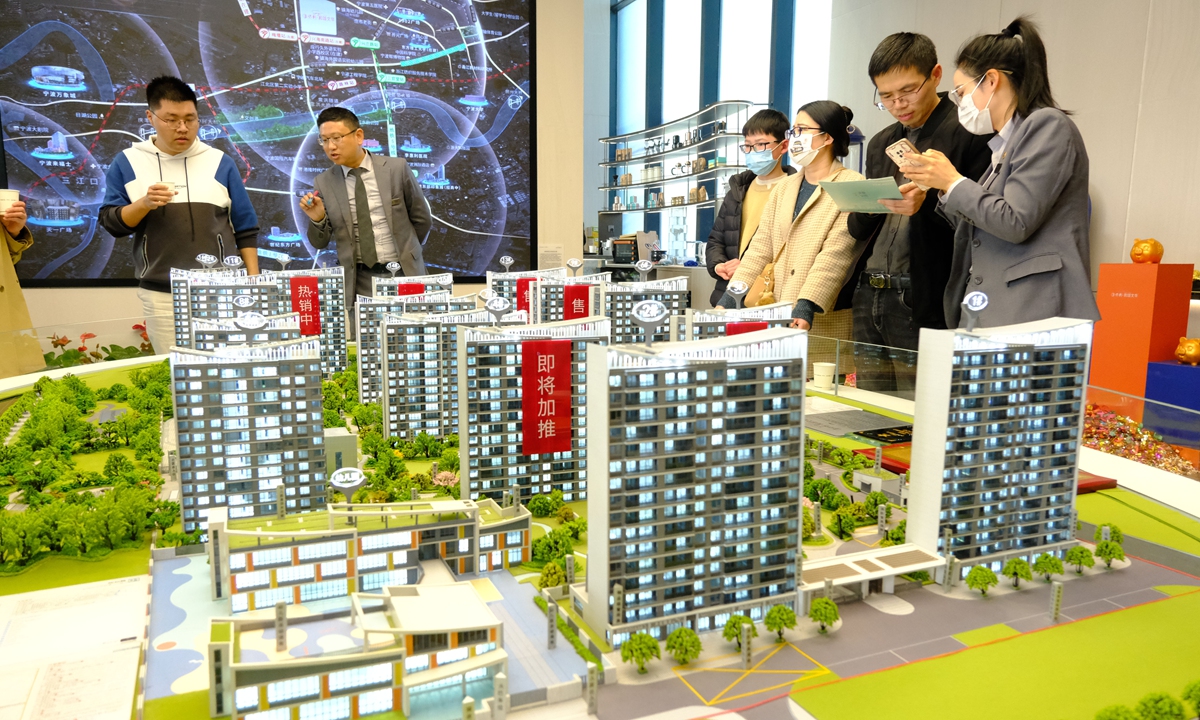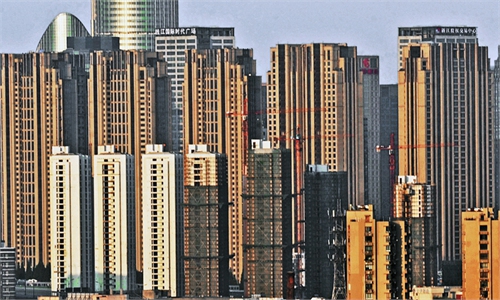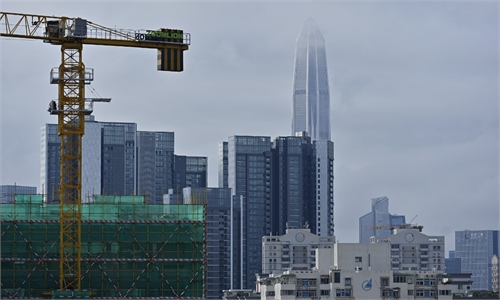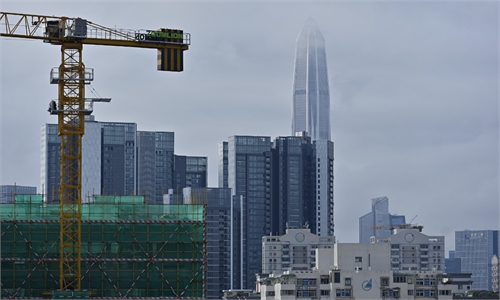HK property developers plan more investment in mainland market
Optimism rises amid economic recovery and easing of industry predicament: analysts

Citizens visit a property developer's sales office in Ningbo, East China's Zhejiang Province, on March 4, 2023. Photo: VCG
Property developers from the Hong Kong Special Administrative Region (SAR) are planning to invest more in the Chinese mainland market, as the mainland sees promising economic recovery after emerging from COVID-19 and the predicament of its debt-saddled real estate sector starts to ease, industry analysts said on Monday.
A number of Hong Kong-based developers recently reported disappointing financial results for 2022, mainly seeing a revenue fall range of 15 to 35 percent, domestic news site yicai.com reported.
Yet, most of them have expressed optimism in their following developments in the Chinese mainland and planned to roll out more projects to seize recovery opportunities in the market.
The easing of COVID-19 policies in Hong Kong and the Chinese mainland marks a key turning point for economic recovery across the company's core markets, Tim Blackburn, chief executive of Swire Properties, said in the developer's 2022 financial report.
The Chinese mainland is now a major contributor to the company's revenue growth, Blackburn said, revealing that the company aims to double its gross floor area in the mainland over the next decade, investing HK$50 billion to grow its retail - led Taikoo Li and Taikoo Hui brands in the first-tier and emerging first-tier cities.
The company plans to develop a boutique luxury project in Xi'an, Northwest China's Shaanxi Province, which is expected to be its next major landmark. In the meantime, the developer said it also remains focused on expanding its presence in the Guangdong-Hong Kong-Macao Greater Bay Area and has been making encouraging progress in the cities of Guangzhou and Shenzhen in South China's Guangdong Province.
Another leading Hong Kong-based developer, Sun Kung Kai Properties, also said it is well-prepared to seize the opportunities arising from the economic recovery of Hong Kong and the mainland. "On the mainland, in the next 10 months, the Group is planning to launch the first phase of the residential portion of Guangzhou South Station ICC, a new phase of Shanghai Arch, and new batches of joint-venture developments," read a statement released by the company on February 23.
This optimism comes from the unexpectedly rapid economic recovery of the Chinese mainland, industry analysts said.
Meanwhile, it seems that the real estate industry in the mainland is bottoming out from two years of predicament; while the land prices are yet to rebound, and this delay presents a strategic opportunity for Hong Kong developers to expand investment in the mainland, Song Ding, a research fellow at the Shenzhen-based China Development Institute, told the Global Times on Monday.
In fact, Hong Kong players are not just starting to expand investment in the mainland market. According to media reports in November 2022, the New World Development Co, Hong Kong Land, Henderson Land Development Co, and other Hong Kong-based developers had all worked on plans to expand their presence in the mainland.
Hong Kong Land even made the largest investment commitment in its 133-year history to build a new financial center on the waterfront of Shanghai's Xuhui district, according to Forbes China.
"People should not be put off by short-term volatility… We should be brave enough to seize opportunities when they come," Hong Kong Land CEO Robert Wong said in an interview with the media.
Recovery as main theme
In an attempt to invigorate the slumping property sector, China has rolled out a raft of supporting measures. In November 2022, Chinese authorities lifted restrictions on equity refinancing and mergers and acquisitions for qualified developers, among a series of moves meant to let listed developers use the capital market to ease their funding woes.
Local governments have also ramped up efforts to help debt-trapped firms to weather the storm and realize sustainable growth, and help boost purchases through issuing coupons and lowering mortgage rates among other measures.
"We have seen more clients hunting for new houses since the Spring Festival," a Beijing-based real estate agent surnamed Zhou told the Global Times on Monday.
There are more house owners coming to us to consult on selling prices as well. Though the turnover still remains sluggish, more potential buyers and sellers are a good sign, he noted.
The momentum of new house hunting in key cities increased by 92 percent month-on-month in February, in which that of the first-tier cities surged by 102.8 percent and that of second-tier cities rose by 91.5 percent, per a report released by a Chinese online real estate agency anjuke.com and online classifieds marketplace 58.com.
Recovering from the debt-saddled predicament will remain the main theme of the sector in the first half of the year, Song said.
New residential housing prices in first-tier cities rose by 0.2 percent in January from the previous month, while prices in second-tier cities rose by 0.1 percent from a 0.3 percent decline in the previous month, data from the National Bureau of Statistics revealed.
This is the first time since February 2022 that the prices have stopped falling, Yan Yuejin, research director at Shanghai-based E-house China R&D Institute, told the Global Times on Monday.
Although there are some seasonal factors, it did indicate that the housing price recovery is gaining momentum, Yan said, predicting that the trend of turning to growth will become clearer in the future.



